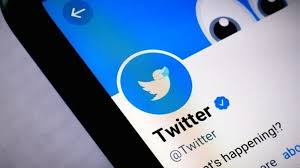Elon Musk, the CEO of Tesla, has offered to acquire Twitter, claiming that the social media network, which he has chastised for not upholding free-speech ideals, needs to be converted into a private firm.
In a regulatory statement on Thursday, Twitter Inc. said Musk, the company’s largest shareholder, has suggested buying the remaining shares of Twitter that he doesn’t already own for $54.20 per share, for a total value of more than $43 billion.
Musk called that pricing his best and final offer, but he didn’t say how he’d pay for it. The offer is non-binding and is contingent on funding and other factors.
“I invested in Twitter because I believe it has the potential to become a global platform for free speech, and I believe free speech is a societal requirement for a functioning democracy,” Musk wrote in the filing. “However, since making my investment, I’ve come to recognize that the company, in its current form, can neither prosper nor serve this societal necessity.” Twitter should be turned into a private firm.”
Twitter said it has received Musk’s offer and will determine whether to accept it or continue to function as a publicly traded corporation in the best interests of its shareholders.
“This soap opera will end with Musk owning Twitter following this aggressive hostile acquisition of the firm,” Wedbush analyst Daniel Ives wrote in a client note. Other bidders or consortiums, he believes, will find it difficult to step forward, and that Twitter’s board will be compelled to accept Musk’s offer or begin the process of selling the firm.
Musk acknowledged in recent regulatory filings that he began buying shares in practically daily batches on Jan. 31 and ended up with an ownership of around 9%. Only the Vanguard Group’s mutual funds and exchange-traded funds possess more Twitter shares.
In recent weeks, the billionaire has been a vociferous opponent of Twitter, mostly because he believes it violates free speech ideals. Followers of Donald Trump and other far-right political figures have had their accounts suspended for violating the social media platform’s content policies on violence, bigotry, and harmful propaganda. Musk, who has defined himself as a “free speech absolutist,” has a history of legal issues stemming from his own tweets.
According to a filing, once Musk declared his position, Twitter swiftly gave him a seat on its board of directors on the condition that he did not control more than 14.9 percent of the company’s outstanding stock. However, five days later, the corporation announced that he had declined.
He didn’t say why, but the decision came after a flurry of now-deleted tweets from Musk advocating substantial changes to the firm, including the elimination of adverts — the company’s primary source of revenue — and the conversion of its San Francisco headquarters into a homeless shelter. Musk hinted at his thoughts on Twitter by “liking” a post that summarized the events as Musk going from “biggest shareholder for Free Speech” to being “told to play nice and not speak freely.”
Musk is one of the most popular figures on Twitter, with 81 million followers, rivaling music singers like Ariana Grande and Lady Gaga. However, his frequent tweeting has brought him into conflict with the Securities and Exchange Commission (SEC) and others.
After Musk tweeted about having the money to take Tesla private for $420 per share, Musk and Tesla agreed to pay $40 million in civil fines and have Musk’s tweets vetted by a corporate counsel in 2018. Although this did not materialize, Tesla’s stock price rose as a result of the tweet. Musk’s current snafu with the SEC could be due to his failure to tell regulators of his growing Twitter investment.
Twitter’s stock rose 11% before the market opened. The stock is still trading at a discount to its 52-week high of $73. Tesla, Musk’s electric vehicle company, had a 0.9 percent drop in its stock price.

















